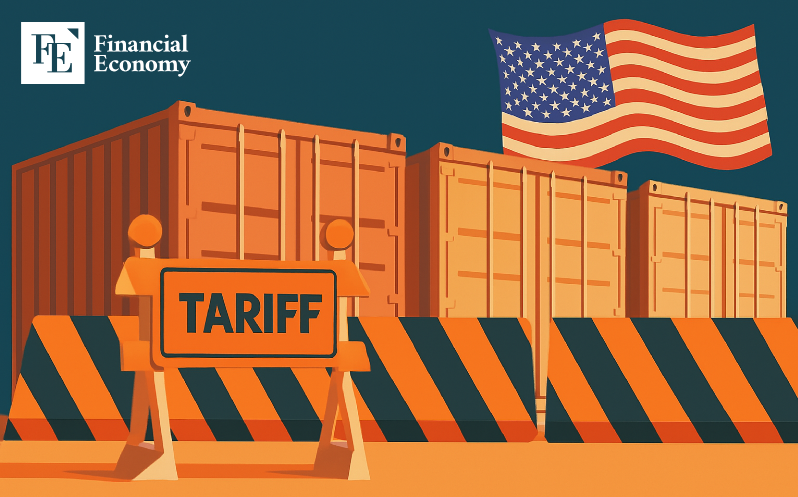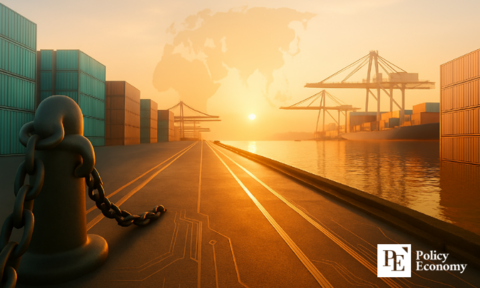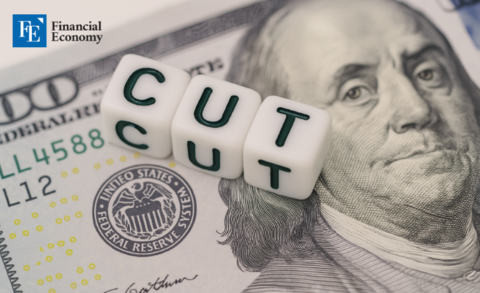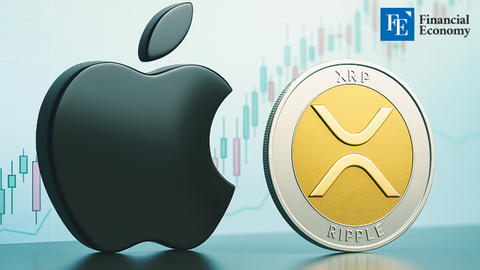Trump’s Tariff War Drags Down Global Oil Prices — U.S. Crude Hits 4-Year Low
Input
Modified
Fears of Recession Mount Amid Escalating Trade War The U.S. will impose a 104% tariff on Chinese imports starting on the 9th, further intensifying global economic uncertainty.

Fears of a global recession triggered by escalating trade tensions have sent international oil prices plummeting to their lowest levels in four years. West Texas Intermediate (WTI) crude futures have now dropped below the $60-per-barrel threshold, as investors, rattled by Washington’s aggressive tariff policies, rush to liquidate positions in oil and other commodities.
Crude Falls Below $60 per Barrel
On April 8, Brent crude futures for June delivery closed at $62.82 per barrel on the ICE Futures Exchange, down $1.39 or 2.16% from the previous session. WTI crude for May delivery ended trading at $59.10 per barrel on the New York Mercantile Exchange (NYMEX), a drop of $1.34 or 2.22%. This marks the first time WTI has fallen below $60 since April 2021, during the early stages of the COVID-19 pandemic.
Oil prices have fallen for four consecutive sessions since U.S. President Donald Trump announced sweeping reciprocal tariff measures on April 2. These tariffs, which triggered retaliatory moves from China, have amplified concerns of a prolonged trade war leading to a global economic downturn and weakened oil demand.
Beijing escalated tensions further on April 8, declaring it would “stand its ground to the end” if the U.S. persisted in its approach. On the same day, White House spokesperson Caroline Levitt confirmed that a total of 104% tariffs on Chinese goods would take effect at 12:01 a.m. (ET) on April 9—an additional 50% hike on top of the already imposed 54%.
Commodity Prices Plunge Amid Tariff Shock
The fallout from the trade war is not limited to oil. In a sign of mounting economic stress, prices of key commodities and precious metals are also tumbling. On April 8, gold futures fell 3.77% from a week earlier to $3,025.94 per troy ounce on COMEX. Silver fared worse, plunging 12.41% to $30.005 per ounce.
Analysts attribute the sell-off to widespread liquidation across asset classes. As equity markets plunged following Trump’s tariff announcement, investors began offloading even traditional safe havens like gold. Global investment bank ING noted, “Investors have been selling precious metals to cover losses elsewhere. Even gold, which reached an all-time high earlier this month, has come under pressure.”
Highly leveraged investors are also facing the largest margin call squeeze since the onset of the pandemic in 2020, intensifying the sell-off. Silver, which is used in electronics, solar panels, and medical devices, saw steeper declines due to its industrial applications. ING warned that “a global trade war will have an especially negative impact on industrial metals,” pointing out that China—the U.S.’s main trade adversary—is the world’s largest consumer of such materials.

Worst Crash Since 2008 Financial Crisis
The trade-driven market carnage has dealt a major blow to Asia’s export-dependent economies. On April 7, Asian stock markets experienced their worst crash since the 2008 global financial crisis. South Korea’s KOSPI plunged over 5% in early trading, triggering a sidecar circuit breaker. It eventually closed down 5.57%, with the KOSDAQ falling 5.25%. Japan’s Nikkei 225 ended the day with a steep 7.83% loss.
Chinese markets bore the brunt of the impact after reopening from a two-day Qingming Festival holiday. Taiwan’s Taiex index plummeted 9.7%, Hong Kong’s Hang Seng Index lost 13.22%, and the Shanghai Composite fell 7.34%.
European markets followed suit, with major indices falling between 3% and 6% during intraday trading. Wall Street also opened sharply lower, with the S&P 500 losing over 4% and breaking below the 5,000-point mark. The tech-heavy Nasdaq dropped more than 4%, falling under 15,000 points.
Despite global turmoil, President Trump remains defiant. Speaking to reporters aboard Air Force One on April 6 en route from Florida to Washington, he stated, “Nobody wants anything to fall, but sometimes you need medicine to fix something.” The remark signaled his intent to continue waging the tariff war to reduce the U.S. trade deficit—even at the risk of further market damage.
This hardline stance has prompted strong reactions from leading economists and financial figures. Jeremy Siegel, renowned investment strategist and professor at the University of Pennsylvania, warned, “This could have even worse consequences than the Smoot-Hawley Tariff Act that worsened the Great Depression. It may go down as the most catastrophic policy mistake in nearly a century. Markets will be in turmoil for some time.”
Even prominent Trump supporters are voicing alarm. Bill Ackman, billionaire hedge fund manager and CEO of Pershing Square Capital, posted a stark warning on X (formerly Twitter): “If we launch an economic nuclear war against the world, investment will freeze, consumers will stop spending, and America’s global reputation will suffer immense damage.” He added, “President Trump is losing the trust of business leaders around the world. This isn’t what we voted for. If he doesn’t walk back these tariffs, we’re heading into an economic nuclear winter.”





















